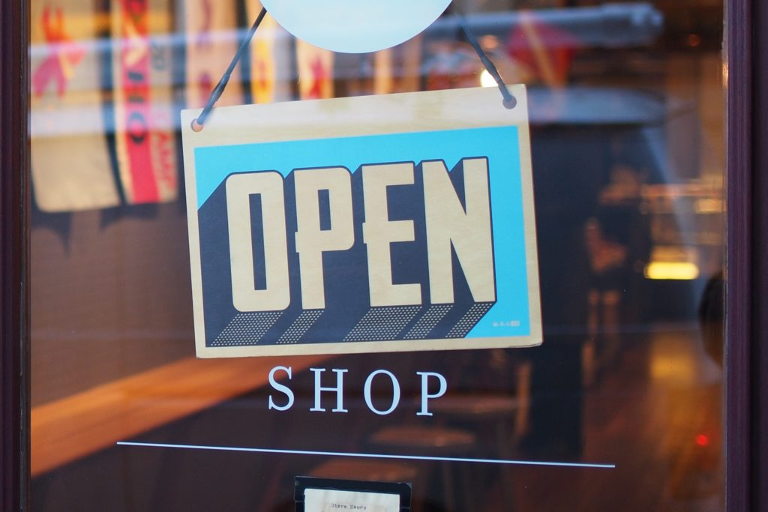With the majority of Americans forced to stay at home and limit social interactions, local economies across the country are suffering as business grinds to a halt.
One company that is not struggling? Amazon. The e-commerce giant has seen booming business, as many justifiably choose to get foods and other essentials delivered rather than risk going outside.
Amazon, however, is a company with numerous social, environmental and ethical issues. Amazon has been accused of exploiting warehouse and delivery workers, degrading the environment, enabling the sales of low quality, counterfeit products, and ignoring even the bare minimum when it comes to corporate responsibility. They also do everything they can to avoid paying taxes – money that would fund schools and other local services. Instead, what you spend on Amazon goes into the pockets of faraway shareholders, and billionaire Jeff Bezos, instead of your local economy.
Thankfully, there are alternatives that are not only local, but can help support community agriculture, civic institutions and cooperative businesses. By keeping your spending local, you can also help your neighborhood, town or city recover from COVID-19 impacts more quickly.
Food and Groceries
Grocery Cooperatives:
There are over 200 grocery and food cooperatives across North America. These businesses are mostly worker-owned or consumer-owned, meaning that profits go to workers and local owners. Many also support other local businesses by sourcing locally, or donating excess profits to the community. They also often carry locally made prepared food.
The best part? Most also have delivery service and stock a lot of what you’d find on Amazon. Check the Cooperative Grocer Network to search for your local co-op.
Food Delivery:
Along with Amazon, it’s also best to avoid food delivery apps like Deliveroo, Doordash, Seamless, Postmates, Grubhub or UberEats. They are not taking good care of gig workers, and are even cheating restaurants. If you want to order from a restaurant, contact them directly and see if they offer their own delivery service.
Online Farmers Markets:
The local farmers market is a key component of a thriving neighborhood, connecting residents with nearby farmers and providing direct access to healthy produce, eggs, meat and other farm goods. During the pandemic, these markets have had to shut down, or are seeing far fewer customers.
That’s where online farmers markets can come in, allowing you to order fresh goods from farmers directly. In New York City, you can try OurHarvest, while those in the Washington D.C. region have From the Farmer. Others can try Farmbox, a national farm-to-home delivery service. If you’re in the United Kingdom, there’s Farmdrop.
This is also a great time to consider signing up to join a Community Supported Agriculture (CSA) network in your area. This allows you to regularly get a box of fresh, seasonal produce from a local farmer.
Media
Books:
Amazon actually started out as a digital bookstore, and as it grew, it devoured book sales and now accounts for about half of all books sold in the United States. This meant that a lot of independent bookstores, which were often centers for community gatherings, struggled. Now they are closed due to social distancing requirements, leaving many with seemingly little choice but to purchase from Amazon.
Instead, try Bookshop, a portal that allows local bookstores to join together through a single platform. Buy your books there, and a minimum of 25 percent of the cover price goes to your local bookstore. Libro.fm does the same for audiobooks. If your local bookstore isn’t on Bookshop, see if they allow for direct ordering through their website.
Access your local library online instead of Prime:
Most libraries are closed across North America, but that doesn’t mean you can’t enjoy some of your library’s services. Many offer e-book lending services, which you can download and read on your mobile device, computer or e-reader. You may be able to read newspapers and magazines via your local library as well.
Less known is that many also offer streaming movies and TV shows through Kanopy, Libby or another provider — often carrying high-quality documentaries and excellent children’s programming. Check your local library website to see what they offer.
Other Goods
Hardware and Sports Co-ops:
Ace Hardware is a retailer cooperative — essentially a network of locally owned stores joining together for purchasing and sales. Many of their branches offer delivery, and they carry a wide range of houseware goods.
Another option is REI, a consumer co-op, which also allows you to order outdoor equipment online.
Buy used, locally:
You can still buy used goods from those in your community. Besides keeping your money local, you can also help reduce over-consumption.
Goodwill, a non-profit that runs thrift stores across the country and focuses on helping disadvantaged people build skills and find jobs, has an online store, too, that offers Ebay-style auctions for used goods. Salvation Army also has a similar online store.
Some local thrift stores are doing delivery during this time, too. Use the National Thrift Store Directory to find the websites for your locations.
Though it can be messy, Craigslist, the original online classified site, where anyone can post products for sale or even stuff they want to give away, is worth checking out. Much of what Craigslist makes through paid job ads, their primarily revenue source, goes into grants to local organizations. Two other options are the Freecycle network and the Buy Nothing Project, in which users exchange goods for free in their neighborhoods.
Buy direct:
Need a particular brand of toothpaste, shampoo or soap? Most brands, including local ones, sell directly to consumers through their own website — sometimes for less than Amazon! Or, try other local businesses; some coffee shops are selling baked goods and grocery boxes, while certain hair salons are selling cosmetics and hair products.
To find out what options exist in your community, check out your local newspapers, many of which share updated lists of local businesses open for delivery or curbside pickup. You might be surprised at what’s available.
Be safe
You can apply the principles of social distancing even when receiving goods directly to your home. Follow these guidelines to ensure safety for both you and the delivery person.
##
 |
Download our free ebook- The Response: Building Collective Resilience in the Wake of Disasters (2019) |
This piece is reposted with permission of Shareable.net.





